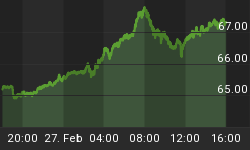When President Bill Clinton proposed a plan for overhauling the health care system, which would have given "health security to all Americans", most Democratic members of Congress were in favor and most Republicans strongly objected. When after years of debate culminating in an all-night wrangle on the House floor and an attempted filibuster in the Senate a costly Republican bill finally passed, most Republicans voted for it and most Democrats against it. This sudden change in Party position obviously reflected no radical ideological conversion but merely a clever political maneuver by the party in power. It managed to outbid the opposition in the endless struggle about benefits and burdens of the welfare system. The new Medicare law merely signaled the outcome of another skirmish about the benefits of seniors. Both sides now must brace for more battles to come.
The law is estimated to distribute $400 billion over ten years. It will enable low-income seniors to receive $600 worth of drugs free in a year; they will have to pay only $1 for each prescription of a generic drug and $3 for a brand-name drug. But $400 billion merely cover some 25 percent of present drug bills incurred by all seniors, now totaling $1.6 trillion. The uncovered part obviously invites future "improvements" and provides a major battleground for both political parties vying for the votes of seniors.
The Congressional Budget Office calculates that the costs actually will amount to $1.3 trillion and $2 trillion as soon as the baby boomers retire. By 2025, Medicare and Social Security benefits together may command some 28 percent of all federal income tax revenue; by 2040, they may take almost one half. In short, future generations are supposed to bear the ever growing burden of retirement costs of their forebears. At least, such are the hopes of many seniors and their representatives in Congress.
If reason were a political choice, the opposition would abhor such legislation and denounce it as glaring misuse of political power. It would condemn legislation and regulation that allow one social class to prey on another. It would deplore the employment of tax collectors, judges, and sheriffs for the benefit of some groups at the expense of others. And it would point to the harmful consequences of such policies on economic productivity and standards of living of all. Unfortunately, the political opposition, just like the party in power, is blind to the consequences; it is determined to push ahead and fight for "health security for all Americans." Politics rarely listens to reason and economics; it is search after power masquerading as a contest of principle.
The pharmaceutical industry obviously welcomes every additional outlay which permits it to grow and prosper. But it may not measure up to all new expectations and entitlements and, therefore, invite simultaneous growth of government interest in its operation. As costs and prices soar, it may face complaints, investigations, charges, prosecutions, and fines. Harassed and vilified in the end, it must brace for ever more onerous rules and regulations. Under the watchful eyes of regulators and legislators, finally, the industry that used to be the envy of the world is likely to stagnate and decline. All along, the intended beneficiaries are bound to be disappointed and therefore will clamor for more. To them, good Medicare is a "sacred right" earned by taxes paid in the past. Actually, it is public assistance called "social insurance."
The intended victims of the Act, that is, future generations of taxpayers, undoubtedly will regard it as their natural right to escape the burden. They may manage to reduce the levies placed on them, set limits on expenditures, or resort to numerous rules and regulations that inhibit them. They may enmesh physicians prescribing the drugs in myriad restrictions and prohibitions, and contrive severe penalties for doctors, pharmacists, and manufacturers who slight the restrictions. As drug prices soar, they may impose price ceilings which will disrupt the distribution of drugs and cause painful shortages. Modest rates of inflation together with price controls may limit the losses; rampant inflation would replace evil with ever greater evil.
Politics is social conflict about burdens and benefits. Fueled by conflict ideologies taught on all levels of education and mass communication, it tends to intensify with every skirmish fought and won. When it finally turns into a fight without end, the conflict society needs a supreme arbiter who, endowed with emergency powers, restores and enforces social peace. It needs a command order. If the present conflict system should ever deteriorate to such a level, Social Security and Medicare will have contributed their fair shares to the new order.















